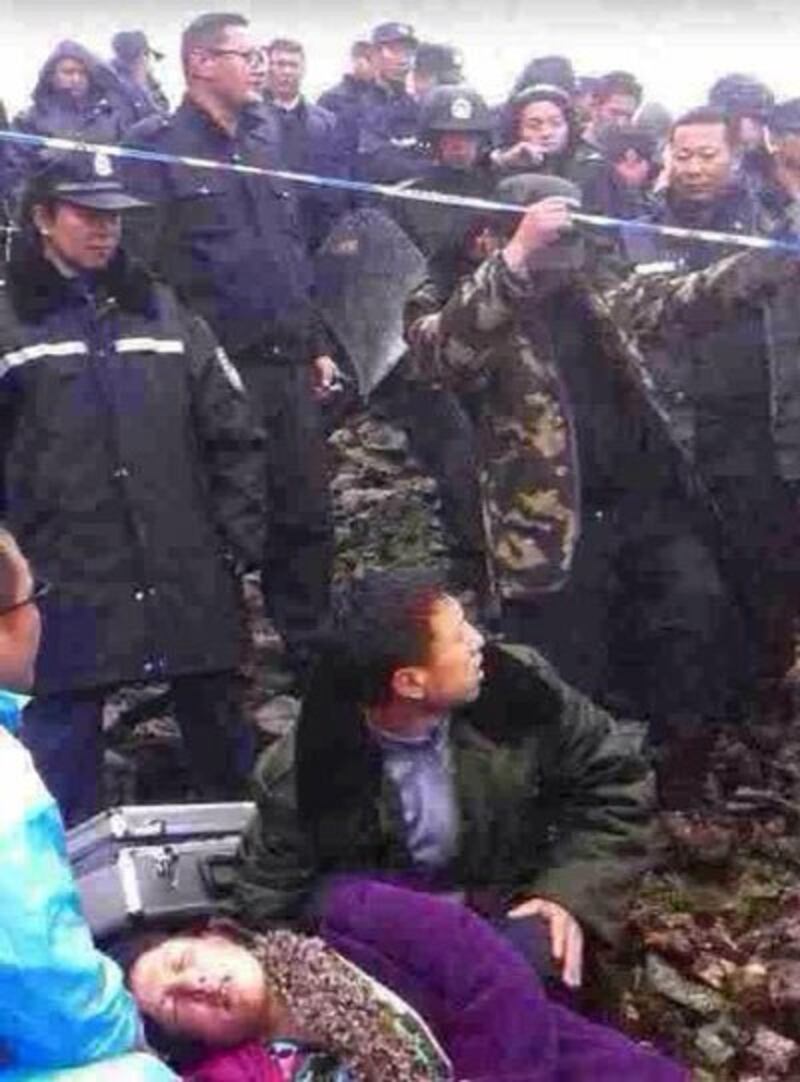Police in China’s southwestern Yunnan province on Monday attacked and beat a group of Tibetan women who had gathered to protest copper mining on land considered sacred by residents living near the site, sources said.
The protest came after Chinese authorities dismissed repeated appeals by Tibetans living in Dechen (in Chinese, Diqing) Tibetan Autonomous Prefecture’s Dechen (Deqin) county to halt the excavations, a local source told RFA’s Tibetan Service on Tuesday.
Mining by the Chinese Huicheng minerals company on Ganglha mountain near Mata village in Dechen county’s Yamen township has left the mountain already scarred by digging, with “extracted ore and waste piled up by the village,” the source said.
Mata residents are worried over police warnings of more severe punishment if they continue with their protests.
“On June 30, the women of the local Tibetan community marched to the site and shouted for the mining work to stop,” the source said, speaking on condition of anonymity.
“The armed police and paramilitary forces who were present did not fire on the women, but instead attacked and beat them,” he said, adding, “Two were beaten especially severely.”
“Later, some men from the Tibetan community joined the protest, and they were taken away and detained.”
“The local Tibetans have called on the authorities to release those who were detained, warning that otherwise they will resort to other means of protest,” he said.

Safety, religious concerns
Tibetan areas of China have become an important source of minerals needed for China’s economic growth, and mining operations have led to frequent standoffs with Tibetans who accuse Chinese firms of disrupting sites of spiritual significance and polluting the environment as they extract local wealth.
"Tibetans in Mata have urged the authorities several times to stop the mining out of concern for the community’s safety and the sacredness of the mountain, but their concerns were never addressed,” RFA's source said.
“Instead, the Chinese miners vowed to continue their work even if the local people objected,” he said.
Huicheng has been found to be operating in the area with a “fake license,” though it has claimed official approval to extract minerals, mainly copper, from the area, according to the source.
Separately, a Tibetan living in exile confirmed the police attack on Tibetan protesters at the mining site, citing contacts in the region.
“Recently, new rich deposits of copper were discovered in the valley of Mata village, and Chinese authorities built a road leading to the mine.”
After local Tibetans resisted the expanded mining, “over a hundred armed police and paramilitary forces were deployed to the area, and they beat and detained Tibetan protesters,” he said.
“They also told the Tibetans they had orders to kill them if necessary,” he said.
“To be beaten is nothing,” he said, adding, “Even more severe punishments may be given to the Tibetans if they continue to resist the mining work.”
Sporadic demonstrations challenging Chinese rule have continued in Tibetan-populated areas of China since widespread protests swept the region in 2008, with 131 Tibetans to date setting themselves ablaze to oppose Beijing's rule and call for the return of exiled spiritual leader the Dalai Lama.
Reported by RFA's Tibetan Service. Translated by Karma Dorjee. Written in English by Richard Finney.
